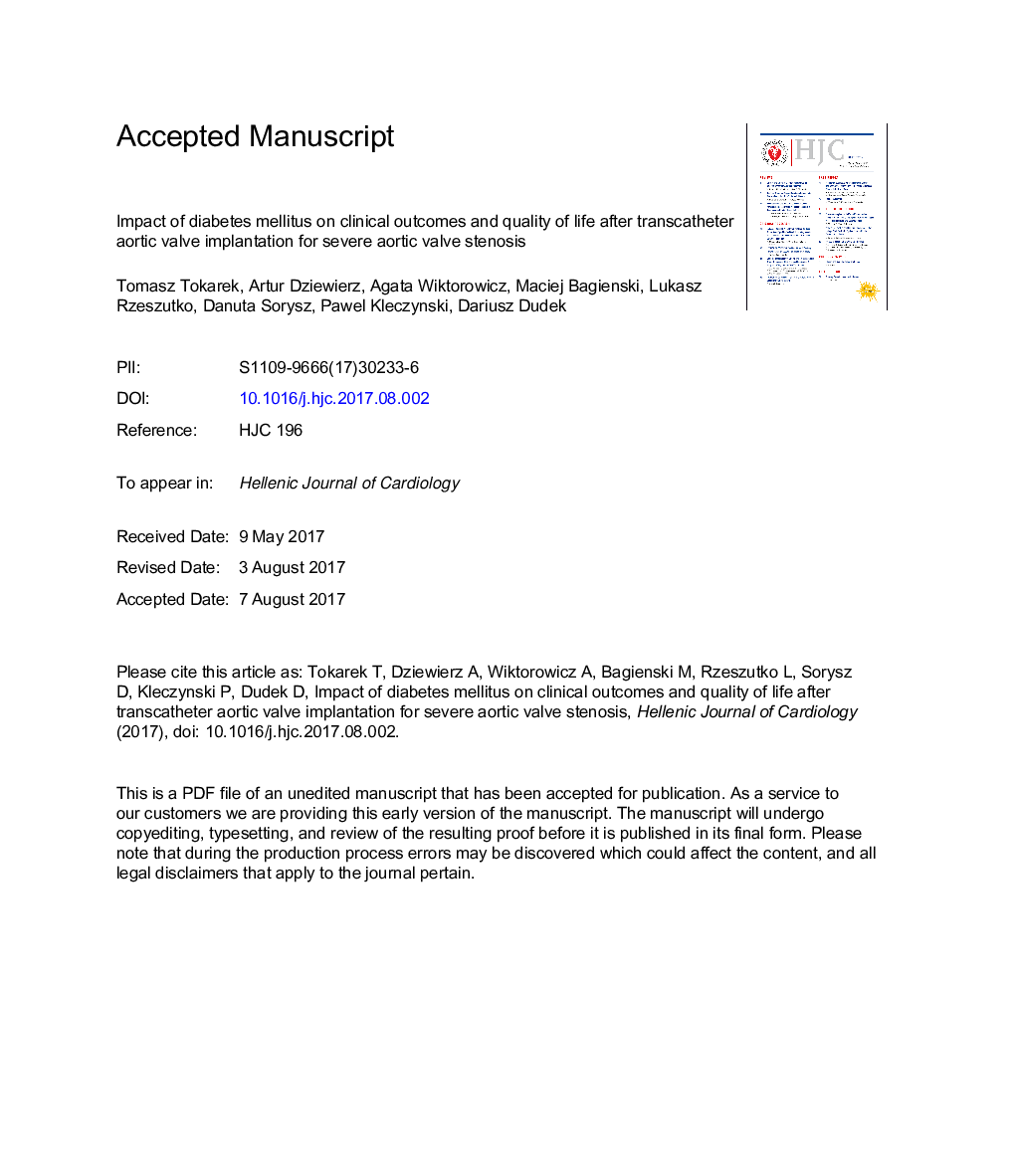| Article ID | Journal | Published Year | Pages | File Type |
|---|---|---|---|---|
| 8660796 | Hellenic Journal of Cardiology | 2018 | 29 Pages |
Abstract
BackgroundDiabetes mellitus (DM) is considered a marker of poor prognosis after cardiac surgery. We sought to investigate the effect of DM on clinical outcomes and quality of life (QoL) after transcatheter aortic valve implantation (TAVI).MethodsA total of 148 consecutive patients with symptomatic, severe aortic stenosis who underwent TAVI were included. Baseline characteristics, procedural and long-term clinical outcomes, and the results of frailty and QoL assessment with EQ-5D-3L questionnaire were compared between patients with and without DM.ResultsDM was present in 48 of 148 (32.4%) patients. No differences in periprocedural risk (Logistic Euroscore and Society of Thoracic Surgeons (STS) scale) between groups were observed. There were no differences in 30-day and 12-month all-cause mortality between groups [DM(â) vs. DM(+): 7 (7.0%) vs. 5 (10.4%), p = 0.53 and 12 (12.0%) vs. 10 (20.8%), p = 0.16, respectively]. No influence of DM presence on the risk of death was confirmed after adjustment for age and gender (for 30-day mortality, age/gender-adjusted OR 1.55, 95%CI 0.47-5.17; for 12-month mortality, age/gender-adjusted OR 2.05, 95%CI 0.79-5.32). Similarly, at the longest available follow-up, mortality did not differ between groups [14 (29.2%) vs. 19 (19.0%), p = 0.16; age/gender-adjusted OR 1.81, 95%CI 0.80-4.08]. Similar rates of other complications after TAVI were noted. Frailty measured with the 5-meter walking test was more frequently reported in patients with DM [11 (22.9%) vs. 10 (10.0%), p = 0.035]. No differences in QoL parameters at baseline and 12 months were noted.ConclusionsPatients with DM undergoing TAVI demonstrated similar mortality, complication rates, and QoL outcomes compared to patients without DM.
Keywords
Related Topics
Health Sciences
Medicine and Dentistry
Cardiology and Cardiovascular Medicine
Authors
Tomasz Tokarek, Artur Dziewierz, Agata Wiktorowicz, Maciej Bagienski, Lukasz Rzeszutko, Danuta Sorysz, Pawel Kleczynski, Dariusz Dudek,
